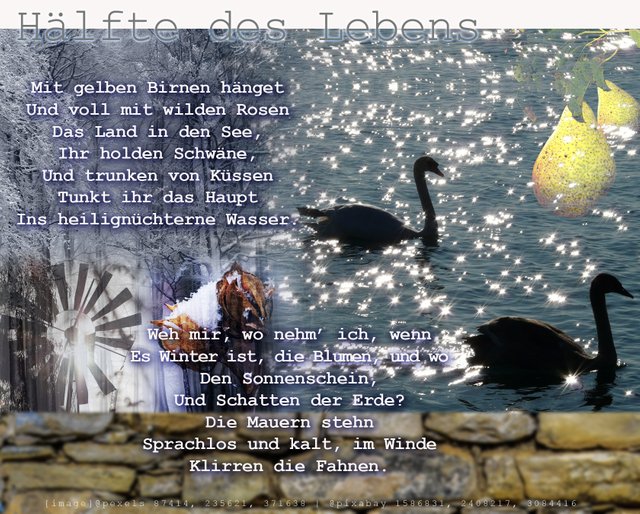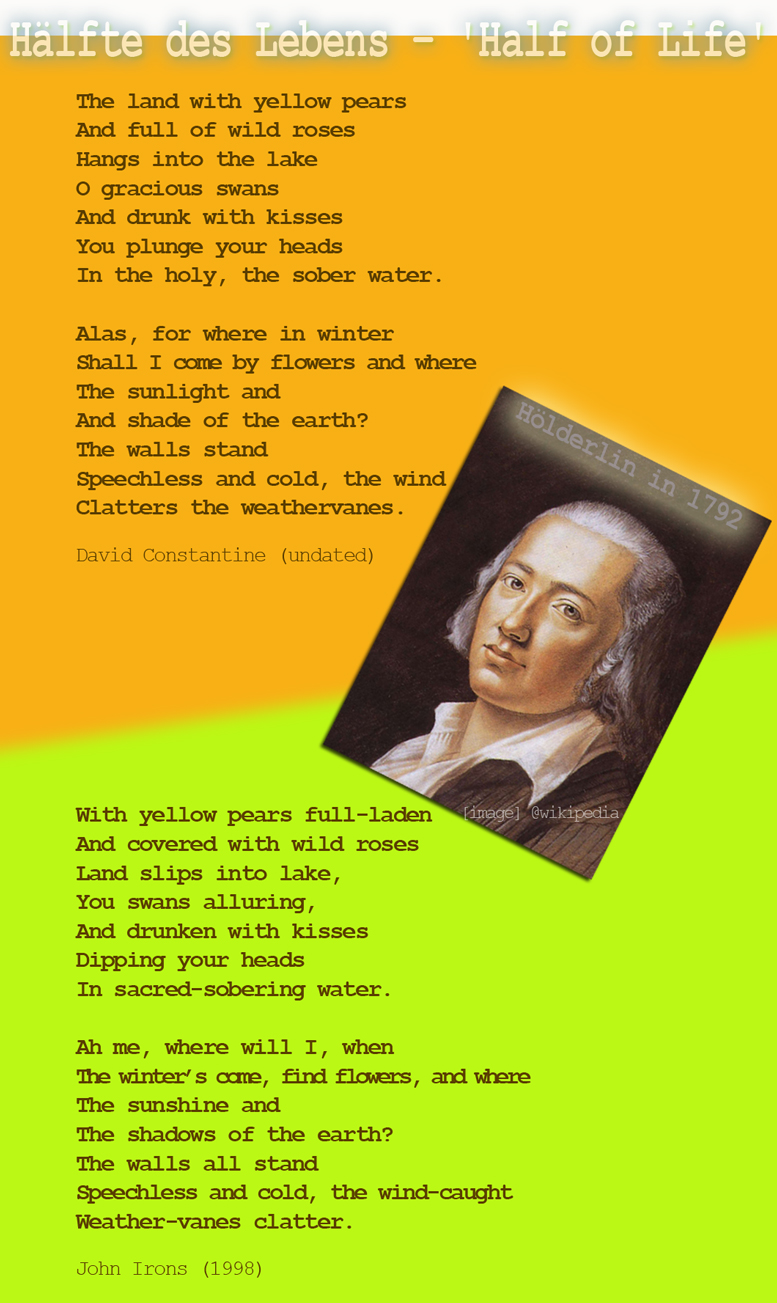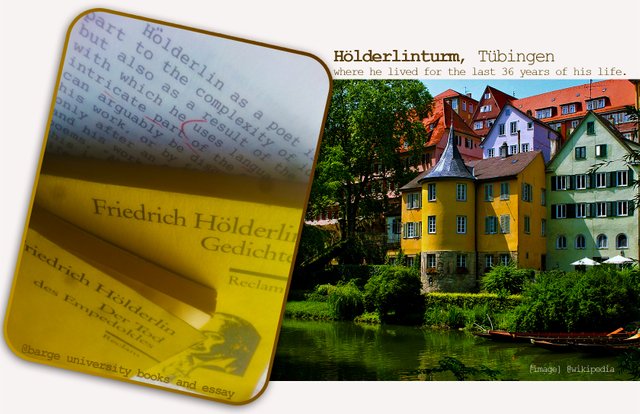SADNESS! A look at the German poem 🌓 Hälfte des Lebens 🌗 by Friedrich Hölderlin
I first came across Friedrich Hölderlin (1770–1843) when studying German at University in 1993. It was my first year of study and we looked at one of his poems – Hälfte des Lebens - the one I am presenting here.

In my final year, I opted to study bits of his life and works. Here I read his play Der Tod des Empedokles (The Death of Empedocles). I found this to be a fascinating piece of writing – which Hölderlin left incomplete after three attempts! What resonated profoundly with me was the issue of communication: how to alleviate the confusion between the messenger and the source of the message? Hölderlin went round and round and just could not break the loop, hopelessly lost in trying to express the ineffable.
A sense of alienation is very much part of Hölderlin's outlook and cast of mind. It is the alienation of the Poet from the Source of his inspiration (Nature, the Gods) as well as from the mass of ordinary people, for whom, through his poetry, he is the medium for this inspiration, but who get stuck at the level of confusing the poet & his poetry with the very source of this poetic inspiraton. The prophetic dilemma of Empedokles is a messianic analogy to this sense of alienation. The people of Greece begin to regard Empodekles as divine, putting him on a pedestal and alienating him from them. At the same time, his ego begins to feed on this reverence and he cuts himself off from the Gods, the source of his inspiration.
Quote from barge essay dated 11 May 1998
Hölderlin's life was desperately unhappy. He was acutely sensitive, and was constantly denied that which was most precious to him. This ultimately seems to have pushed him over the edge and concerns of approaching insanity run through his writings. He was diagnosed with schizophrenia in the late 1790s and left destitute, abandoned by friends and family. The last 36 years of his life were spent in isolation, helped only by the carpenter who provided him lodgings in his house - a tower which was once part of the old city wall of Tübingen, Germany.
This brings me at last to a look at his sad and beautiful poem 'Hälfte des Lebens' – 'Half-' or 'Middle of Life', first published in 1804 when the poet was 34 years old. This poem kinda hit me when I first read it – the simple, powerful imagery; the sharp contrast between the stanzas; the goose-pimpling vision of approaching insanity. The gratefully acknowledged and precious, sacred softness of the first half gives way to the cold and brutal reality of everything being taken away. He sees it coming, there is nothing he can do but wait; there is no respite, no mercy; the spinning weathervanes signal the approaching tsunami!
I won't say any more, and will leave you instead with two translations of the original German, one of which adheres closer to the rhythmic patterns of the original, yet both of which provide a fair sense of what is going on in the poet's tortured mind.

Link to PDF with various translations and discussions of Hälfte des Lebens
Thanks for reading
Namaste!
